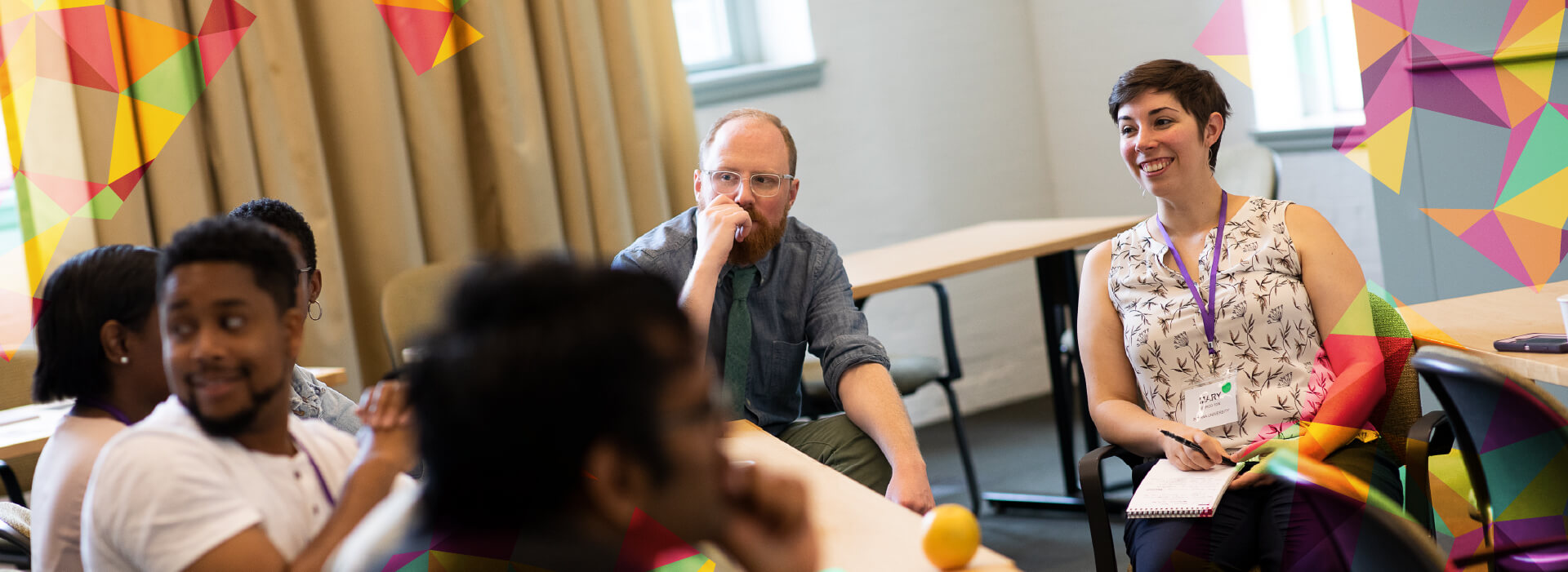
Code of conduct
About CLIR and DLF
How to Be
CLIR and DLF are dedicated to providing in-person and online collaborative and meeting experiences that are free from all forms of harassment, and inclusive of all people. Small actions you can take will help us meet this goal. For instance, we suggest: listening as much as you speak and remembering that colleagues may have expertise you are unaware of; encouraging and yielding the floor to those whose viewpoints may be under-represented in a group; using welcoming language, for instance by honoring pronoun preferences and favoring gender-neutral collective nouns (“people,” not “guys”); accepting critique graciously and offering it constructively; giving credit where it is due; seeking concrete ways to make physical spaces and online resources more universally accessible; and staying alert, as Active Bystanders, to the welfare of those around you.
Likewise, it is important to understand the range of behaviors that may constitute harassment. Harassment can include unwelcome or offensive verbal comments or nonverbal expressions related to: age; appearance or body size; employment or military status; ethnicity; gender identity or expression; individual lifestyles; marital status; national origin; physical or cognitive ability; political affiliation; sexual orientation; race; or religion. Harassment can also include use of sexual and/or discriminatory images in public spaces (including online); deliberate intimidation; stalking; following; harassing photography or recording; sustained disruption of talks or other events; bullying behavior; inappropriate physical contact; and unwelcome sexual attention.
Sexual, discriminatory, or potentially triggering language and imagery is generally inappropriate for any CLIR or DLF venue. However, this policy is not intended to constrain responsible scholarly or professional discourse and debate. We welcome engagement with difficult topics, done with respect and care.
What to Do
CLIR and DLF do not tolerate harassment of any of our community members in any form. If you are being harassed, notice that someone else is being harassed, or have any other concerns, please contact a member of the education team, CLIR staff or a designated community volunteer or advisor immediately. At the beginning of each program meeting, the names and current contact information for these individuals will be provided to you. These individuals have been instructed to support you in confidence. Their assistance will include contacting venue security or local law enforcement as appropriate, providing escorts, or otherwise helping those experiencing harassment to feel safe.
To report incidents after our events, in online venues, or on-site but in the absence of an available staff member or volunteer, contact Director of Research and Assessment Christa Williford at cwilliford@clir.org, or Managing Director Louisa Kwasigroch at lkwasigroch@clir.org. If you or others are in imminent danger, always first phone emergency services at 911. If you would prefer not to contact program leaders or staff, you may contact the designated community volunteer, a program Advisory Committee member, or the Chair of CLIR’s Board of Directors.
All reports and inquiries will be handled in confidence.
CLIR expects all Fellows to follow these rules at all conference venues and fellowship-related social events. Participants in CLIR or DLF discussions or events (held online or in person, including social events) who are asked to stop harassing or intimidating behaviors are expected to comply immediately. Those who violate our code of conduct may be warned, sanctioned, or expelled, or terminated at the discretion of CLIR’s President and program organizers.
We value your presence and constructive participation in our shared community and thank you for your attention to the comfort, safety, and well-being of fellow participants in the CLIR Postdoctoral Fellowship Program.
This Code of Conduct is adapted from the DLF Code of Conduct, which is itself inspired by the work of Geek Feminism; DHSI; Code4Lib; ALA; LITA; AMIA; SAA; US OpenGLAM; ADHO; Recurse Center; Contributor Covenant; Vox Media; and Scholars’ Lab. The 2016 DLF Forum Inclusivity Committee and DLF Advisory Committee community advisors deserve credit for the insights and approach documented here.
Fellows
Partner Organizations
Fellows in the USA
Fellows in Canada & Overseas
